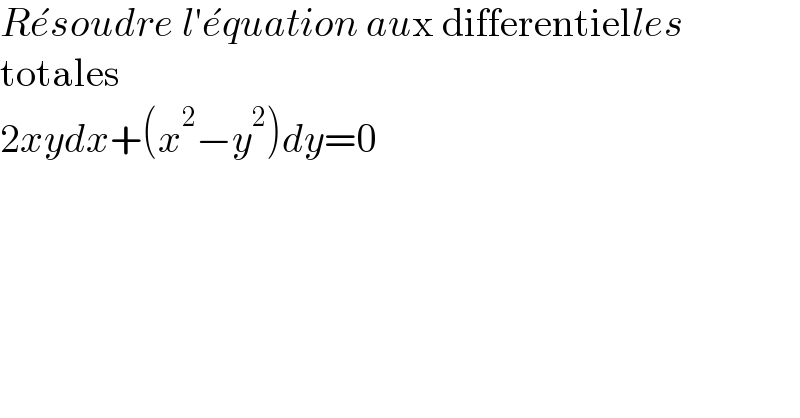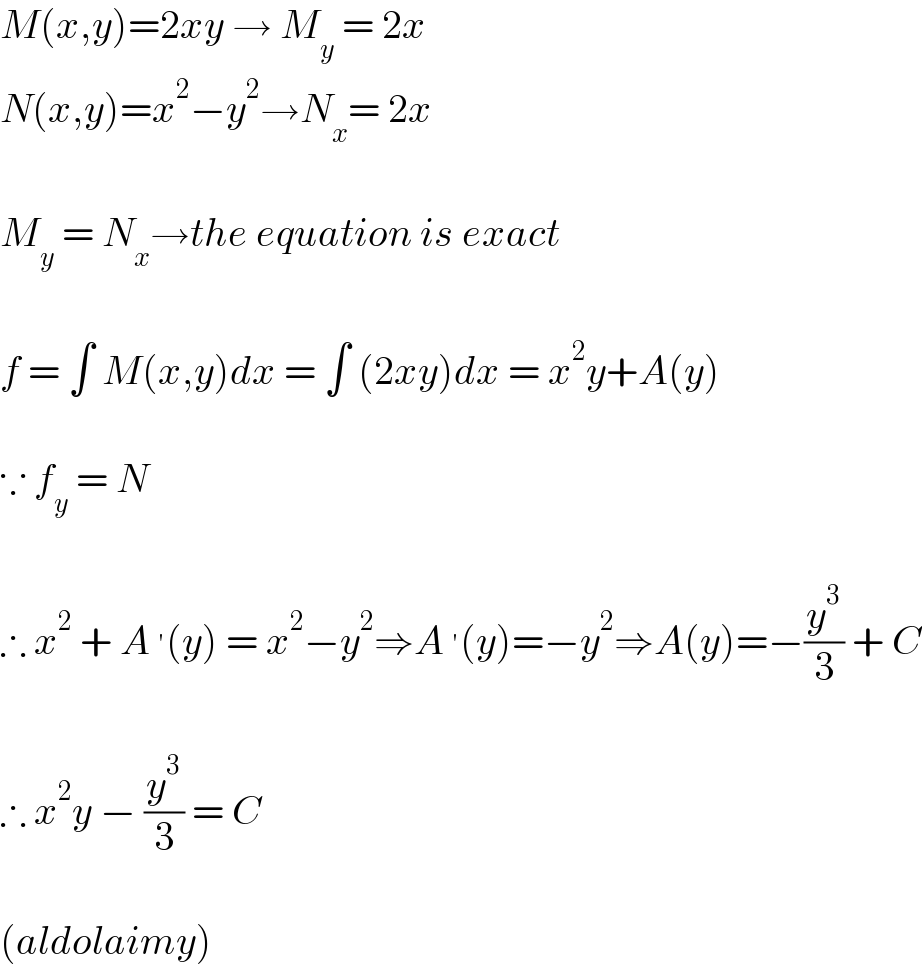
Question and Answers Forum
Question Number 168518 by LEKOUMA last updated on 12/Apr/22

Commented by mokys last updated on 12/Apr/22

Answered by alephzero last updated on 12/Apr/22

| ||
Question and Answers Forum | ||
Question Number 168518 by LEKOUMA last updated on 12/Apr/22 | ||
 | ||
Commented by mokys last updated on 12/Apr/22 | ||
 | ||
Answered by alephzero last updated on 12/Apr/22 | ||
 | ||
| ||